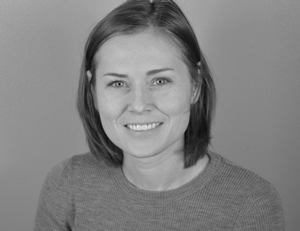|
When I look at early drafts of students' short fiction, one of my first questions is often, "So, where does this story take place?" It's a question I ask so often that by the second or third week of the semester, the students will give each other a look and someone will usually get bold enough to take issue with the assumption behind the question—that every story should happen in a particular, identifiable place. What if the setting doesn't matter? What if the point of the story is simply what happens, who it happens to? What if their intention was to write a story that could occur anywhere? They've read terrific published stories in which the setting is all but invisible, many more in which the place is vivid but unnamed, but my point is not that it is impossible to write a good story without knowing where it takes place but that I'm not sure why you'd want to.
For me, place is central to fiction writing—where a story starts and what I lean on if I get stuck. Imagining place is how I get into the dream world, how I create images that bring the fictional world to life, but also how I know what's possible. If a story takes place on an August afternoon in Tallahassee, Florida, I know that it is likely raining so hard that the sidewalks are gushing with mud and water. Florida State students will be returning to campus in droves and, depending on the week, new sorority pledges will be clustered around the pink fountain at the main entrance in sundresses and high-heeled sandals. Sticky green tree pollen and Spanish moss will coat the streets and cars and houses and "lovebugs," the little black flies that travel with their hindquarters stuck together, will flurry against windshields. The state legislature will not be in session, but the government buildings and their year-round employees will sit at the center of town on the top of a hill. Knowing these details gives me the imagery to create a memorable world filled with vivid sensory information, but these details also give me ideas about what the protagonist might be thinking and feeling and who or what may interrupt her agenda.
For beginning fiction writers, focusing on place is one of the easiest ways to improve stories that aren't quite working. Doing so requires almost no imagination—simply looking closely, paying attention, mining your memory and/or conducting research. Paying attention to place, though, often addresses many of the common problems that plague the early stories of beginning writers—lack of detail and specificity, unrealistic characters and situations, and reliance on factual information that taxes readers instead of creating a sharp, sensory world that can simply be experienced. At first, choosing a setting for a story can feel like a closing out of possibilities. If a story takes place in Tallahassee, it can't also take place in Miami or Montgomery or Charlotte. It will not be a generic and universal story but a particular one that happens to a specific person at a specific moment in time and place. This reality, though, that a story is always specific, always particular, always this exact person and world that someone has dreamed into being, is what I love about fiction.
|


